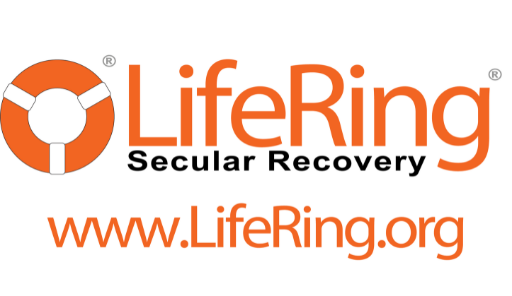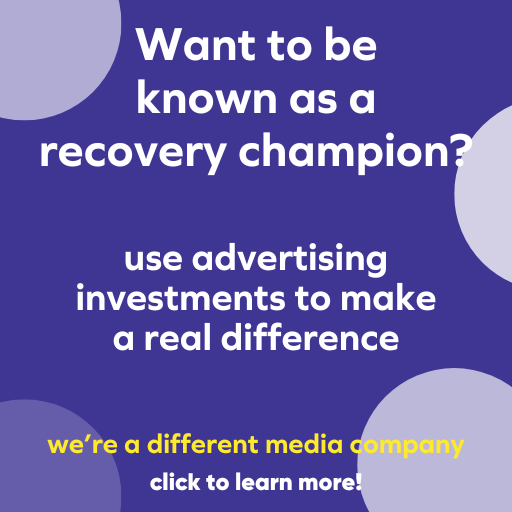by Kim Wilson
LifeRing Secular Recovery is an organization of people who share practical experiences and sobriety support. There are as many ways to live free of drugs and alcohol as there are stories of successful sober people. LifeRing provides support through local in-person meetings, online meetings, a variety of publications, and other online resources.
LifeRing, originating in California, now has an international presence. At its heart, it is a meeting-based program where members support and encourage each other on their various paths to sobriety.
The organization is based upon the philosophy of the “3 S’s” – Sobriety, Secularity, and Self-Empowerment.
Sobriety
The program is abstinence-based. According to Byron Kerr, a long-time LifeRing member and meeting convener with 13 years of sobriety under his belt, “The only specific thing we advocate is sobriety. We define that as complete abstinence from alcohol and all non-prescribed drugs.” (Prescribed drugs include medication-assisted treatment for addiction.)
Secularity
Byron explains the second “S,” Secularity, when he says, “Your personal view [on religion] remains your business. A devoutly religious person should feel as equally welcome as a godless communist. They should all feel welcome in LifeRing.”
LifeRing teaches that regardless of your religion, the success of your sobriety is based on your motivation and efforts in your path to recovery.
This tenet resonated with Byron.“I’m not anti-religious,” he explains. “I was raised in a religious family; my father was a full-time minister. My entire family is religious, and my former spouse was a devout person. It’s just not part of my worldview. I appreciate the philosophy [of LifeRing] in that the individual is responsible for their own sober path,” he continues. “That’s what I identified with. Nobody else made me have a problem with alcohol, it was all me. And I’m the one who’s responsible for correcting it.”
Self-Empowerment
Byron’s beliefs coincide with LifeRing’s third “S” — Self-Empowerment. This piece of LifeRing’s philosophy has, at its foundation, what is known in the program as a Personal Recovery Plan (PRP).
Mary Beth O’Connor, another longtime LifeRing member, board member, and head of the Speakers’ Bureau. explains more about the PRP. “It is a key part of our philosophy. One size does not fit all. We encourage members to attend meetings, to read, to listen. These are all sources for your ideas fora plan.”
She stresses the importance of having a PRP. “I had 30 years sober on January 13,” she says, “and I did it by building an individual plan. One of the advantages of an individual plan is trusting my judgment and figuring out who I am, and what might work for me. I set goals and built plans for my sobriety and it turns out that same skill set applies to everything else in life too.”
She continues, “As part of a PRP, some of our members also do other programs. They might do AA and LifeRing, for example, and we support that 100%. If you think going to both a 12-step program and LifeRing gives you the best sobriety foundation, we support that.”
One important element of any PRP, Byron explains, is a plan regarding relapse. “Relapse is a common denominator in the recovery world,” he says. “I like to suggest that people have a plan regarding that. How are you going to navigate temptations or urges? Know how you’re going to encounter it. Know how you’re going to navigate it. Have that as part of your plan.”
That is where the meetings come in. LifeRing meetings are discussion-based where conversations between members are the heart of the meetings, and the dialogue focuses on the present, not the past.
“We start with the question ‘How was your week?’” Byron explains. “Each individual has an opportunity to check in and to say how it’s going regarding their sobriety, and discuss any challenges they’d like to talk about.”
By having smaller meetings, attendees have more opportunities to share and learn from each other.
Mary Beth O’Connor – My Recovery Through LifeRing
When I entered rehab for my lengthy meth use disorder, I was ordered to submit to the 12-steps, a program that helps many but wasn’t right for me.
So, I searched the books for concepts consistent with my worldview, analyzed all the ideas presented to me, and applied those I found useful.
I then located other peer support options, such as LifeRing Secular Recovery’s predecessor, and built a PRP tailored to my needs and goals.
Taking control of my recovery turned out to have many positive impacts. I reconnected with my natural strengths in reading and analysis. I made a list of all the areas in my life on which I needed to work, filtered this for my highest priorities, set goals in those areas, created detailed plans, and then implemented them.
I adjusted my approach based on successes and failures. I set new goals as I achieved those on my initial list. And I did this over and over, month by month, and year by year.
Using this process over time, I made great strides in every area of my life. I’ve been sober since 1994, have a great marriage, and show up for my family and friends.
I attended Berkeley Law, and was appointed a federal Administrative Law Judge. I now speak about and advocate for multiple pathways to recovery. I even wrote a memoir, From Junkie to Judge: One Woman’s Triumph Over Trauma and Addiction, which chronicles my journey and provides useful tips and guidelines for those seeking recovery.
Self-empowerment doesn’t mean shutting yourself in a box…there is great value in learning from others, getting ideas, and asking for support.
LifeRing — Frequently Asked Questions
What is the LifeRing program?
The hallmark of a quality treatment program is to match the treatment to the individual. LifeRing adopts that same approach in their self-help work. They encourage each participant to work out their own particular path and to use the group process as a workshop for that purpose.
LifeRing publishes a workbook, “Recovery by Choice,” as a tool for building one’s “Personal Recovery Program” or PRP.
What is the LifeRing meeting format?
Formats vary, but at most meetings, the topic is “How Was Your Week?” Each person reports on the highlights and heartaches of their past week and plans for the decisions of the coming week.
Conversation (“cross-talk”) is encouraged. Personal drinking/drugging histories (“drunkalogues”) are discouraged. The meeting ends with a round of applause to one another for staying clean and sober.
Does LifeRing have sponsors?
Participants of LifeRing each work out personal programs, so there is no real role for a Program guide. They do very much value supportive contacts between meetings and circulate phone and email lists at meetings for that purpose.
Where can I find out more information about LifeRing?
This website is a good place to start (lifering.org). For a fast response, check out the online connections. To contact LifeRing, please email service@lifering.org or call 1-800-811-4142.





